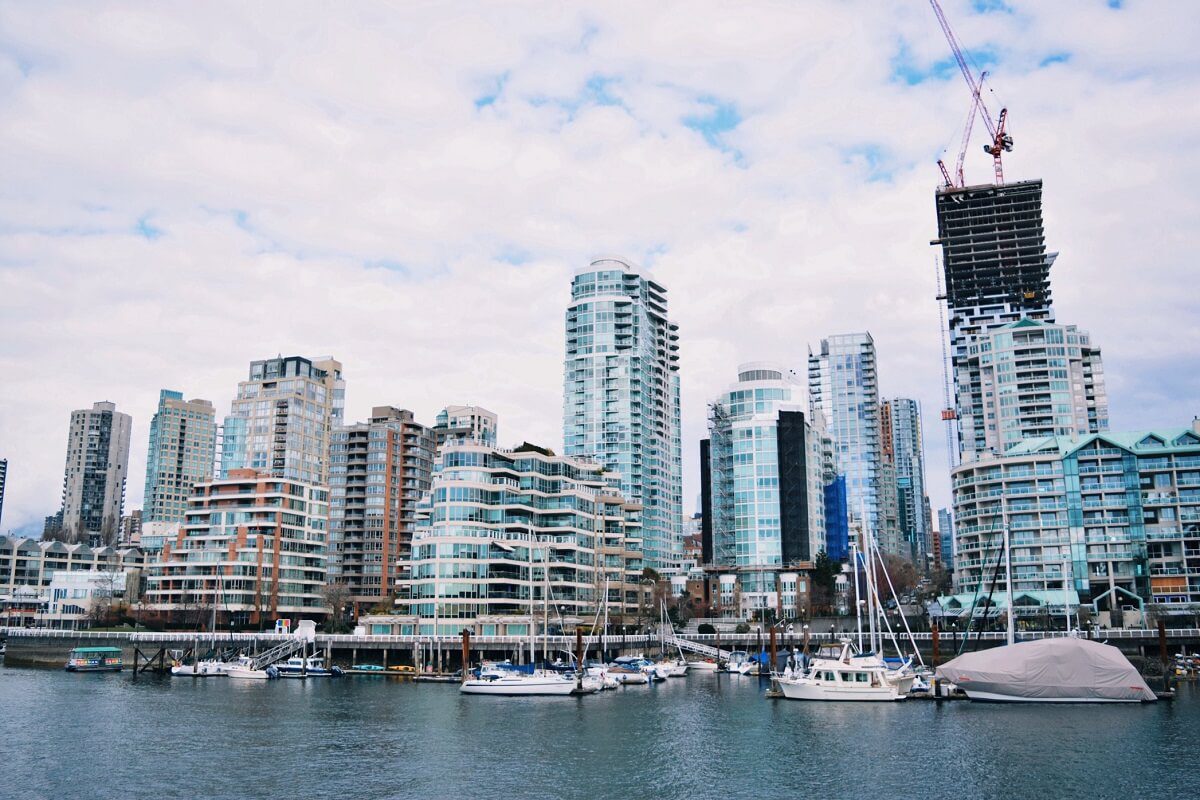Overview
Vancouver, British Columbia (BC) is the region at particular risk due to its large population density and elevated level of seismic activity. A report made by IBC shows that in the last 24 significant earthquakes in Canada: “The significant events are mainly concentrated in 2 regions: the west coast of BC and the other in southeastern Canada.”
“According to studies by the Geological Survey of Canada and Natural Resources Canada, southwestern British Columbia, including the provincial capital, Victoria, and the Vancouver metropolitan area, falls in a high-risk area. There is at least a 30% chance that an earthquake strong enough to cause significant damage will strike this area in the next 50 years.”
Usually, most life insurance policies do not cover earthquakes, and it is sold separately. But living in a disaster-prone area is also more likely to lead to events that take lives indirectly from disasters or develop health problems. Though life insurance can’t keep you safe, it helps your loved ones deal with the aftermath.
Besides, during the pandemic, one survey found that:
- While 71% of Canadians said they would cut back on entertainment and dining out, only 13% said they would look to cut insurance premiums.
- 63% of Canadians think life insurance has become more critical.
- 82% say they are anxious about the finances
More and more Canadians see life insurance as valuable, especially those in Vancouver and especially during the pandemic. So, what prevents them from buying? Here are some top reasons:
- They already have life insurance from their employers.
- They can’t buy online.
- They think it’s expensive.
- It’s too complicated for them.
- It takes too long.
- They can’t find an advisor to trust.
- They don’t want medical exams.
There are a few misconceptions here:
- Is it too expensive? No, at all. If you choose to buy term life insurance, get rid of unnecessary riders, select just enough coverage, and buy it right now, the premium will be much, much lower than you think.
- Is it complicated? Yes, it is. But no, you don’t have to do it yourself. If you can find an advisor you can trust, life will be much easier. After listening to you, they will compare the products of various insurers that suit your needs.
- Can’t buy online? Many people didn’t know that most brokers have online tools to process your application in minutes.
- Medical exam? No need. Many life insurance policies don’t require a medical exam. But keep in mind that they will increase your premium.
What Life Insurance do you need?
There are different life insurance types, such as life insurance, whole life insurance, universal life insurance, indexed universal life insurance, variable life insurance, etc. But basically, there are two groups: term life insurance and whole life insurance.
Term life insurance provides you the coverage in a certain period, hence the name “term.” Which term to choose is up to you, but the common ones are 10-, 15-, 20-, 25-, and 30-year. If you pass away within the selected term, the chosen beneficiary will receive the payout from the company.
Unlike term life insurance, whole life insurance provides lifetime coverage. The policy ends whenever you pass away, and the company will pay the death benefit. But whole life insurance is more complicated because of the investment aspect with cash value and dividend. Many people think that it’s a forced investment, while there are better-investing options.
In the past whole life insurance was very popular. But term life insurance is getting more and more a popular choice because:
- It’s much more affordable.
- It’s more flexible. You can convert, extend the term.
- It’s a better choice for a young family.
- It’s simple, very straightforward.

Some examples of life insurance you can have in Vancouver:
| Male Age: 39 Non-smoker Term Life: 20 years Coverage: $500,000 | $50.01 monthly | Male Age: 25 Non-smoker Term Life: 20 years Coverage: $500,000 | $32.86 monthly |
| Male Age: 39 Smoker Term Life: 20 years Coverage: $500,000 | $133.14 monthly | Female Age: 39 Non-smoker Term Life: 20 years Coverage: $500,000 | $34.21 monthly |
| Male Age: 39 Non-smoker Term Life: 30 years Coverage: $500,000 | $94.87 monthly | Male Age: 39 Non-smoker Whole Life Coverage: $500,000 | $457.70 monthly |
The example premiums are monthly and are just a rough estimation. When you request a quote and provide your personal information, you will get a more accurate number.
Read more : Family Life Insurance In Canada
Life insurance in Vancouver : Rates Compared
Vancouver is subject to the same premium tax rate as British Columbia. Insurance companies cover premium tax, and you are usually unaware of it. However, companies will add this tax to the premium and increase the premium.
- Newfoundland and Labrador: 5%
- Prince Edward Island: 3.5%
- Quebec: 3.48%
- Nova Scotia, Saskatchewan, Alberta, Northwest Territories, Nunavut: 3%
- New Brunswick, Ontario, Manitoba, Yukon, British Columbia: 2%
Look at the premium tax rates in provinces, and you can see that the premium tax rate in Vancouver is the lowest in the country. It means you get a tax advantage when buying insurance in BC compared to other provinces. But these differences are only between provinces.
By individual, premiums are determined based on risk. Insurers consider the likelihood and how much that you make a claim. The top factors that affect insurance premiums are:
- Coverage: this directly affects the premiums. The larger the death benefit, the more expensive the premium. In addition, the price also increases if you buy riders or add dependents.
- Type of life insurance: whole life insurance is usually much more expensive than term life insurance, and for term insurance, the longer the term, the higher the premium.
- Age: Obviously, age is the most critical factor affecting premiums. The older you are, the higher the insurance company’s risk to pay you if you die. As a result, insurance premiums also increase correspondingly.
- Health condition: your health condition at the time of purchase of life insurance is a measure of risk for the insurance company. This is an essential factor and certainly has a significant impact on premiums. Even your medical history will be taken into account.
- Gender: statistics show that women tend to live longer than men. So, gentlemen, accept a higher premium.
- Occupations: they categorize occupations into four groups with specific guidelines. But in general, occupations with high risks will increase the premium, such as active military, aviation, building and construction, electric powerline construction and maintenance, law enforcement, firefighting, etc.
- Bad habits: bad habits such as smoking and drinking will also lead to higher insurance premiums.
Besides, the operating expenses are also taken into account to calculate the premium. Those are reasons why your premium varies between provinces, insurers, and your condition. To make a fair comparison, we should put them on the same specific criteria. Consider the coverage of $500,000 of a 20-year term life insurance premium of a man at age 39.
| Insurer | Monthly Premium | Annual Premium |
| Manulife | $50.08 | $558.98 |
| Canada Life | $51.30 | $570.00 |
| Desjardins | $48.60 | $540.00 |
| IA | $49.05 | $545.00 |
| RBC Insurance | $47.61 | $529.00 |
| SSQ | $47.25 | $525.00 |
| BMO Life | $49.05 | $545.00 |
| Foresters | $50.40 | $560.00 |
| Equitable Life | $52.03 | $578.11 |
| Empire Life | $48.15 | $535.00 |
| ivari | $56.70 | $630.00 |
There are many ways that you can lower the premium. Here are some tips:
- Rider: some life insurance policies include additional options that increase the price. You should check them carefully and compare the benefits to the amount of money you spend more. Exclude them to reduce the premium.
- If you are young with good health, you don’t need a guaranteed issue life policy. This type of insurance does not require your medical exam, but it costs you more.
- Smoking and drinking increase the premium significantly. Having a good lifestyle not only improves your health but also decreases the premium.
- Buy life insurance as early as possible, the premium is much lesser as you’re young, and it stays the same until the covered period ends.
- Choose the amount of coverage wisely because it’s the main factor that makes up your premium. Getting over coverage will create more pressure. Just pick the right amount that you need.
What are leading insurers in Vancouver?
When you need to buy insurance, perhaps one of the first things coming to your mind is which insurer to choose. To make it easier for you, we list down the leading insurance companies in Vancouver. They are evaluated on three main dimensions: financial strength, gross annual premiums, and total assets.
Financial Strength Rating: tells you whether an insurer can pay its claims. The AAA, AA, A indicate that the company has a solid financial standing. The rest are BBB, BB, B, CCC, CC, SD, and D.
Total Annual Premiums: tells you how much an insurer collects from their customer yearly.
Total assets: while the rating system factor is operated by S&P, with the contribution of brokers and other elements in the industry, the whole assets factor is required by the government. It implies the solvency of the insurer.
| Insurer | Financial Strength Rating | Annual Premiums | Total Assets |
| Manulife | A+ | $39.2 B | $200 B |
| Canada Life | A+ | $36.4 B | $219.7 B |
| Sun Life | A+ | $20.9 B | $173.2 B |
| Desjardins | $9.2 B | $39.8 B | |
| IA | A+ | $8.6 B | $58.3 B |
| RBC Insurance | A | $4.2 B | $15.1 B |
| SSQ | A- | $2.5 | $12.4 B |
| La Capitale | A | $2.3 B | $6 B |
| BMO Life | A | $2.0 B | $11.2 B |
| Co-operators | A | $1.3 B | $6.5 B |
| Foresters | A | $1.3 B | $2.6 B |
| Equitable Life | $1.0 B | $4.2 B | |
| Empire Life | A | $1.0 B | $15.5 B |
| ivari | A+ | $830.9 M | $11.5 B |
These factors don’t necessarily mean the leading companies are the best for you. It’s a good idea to talk to the advisor to balance the insurer’s financial advantage and whether the insurance company’s policy is suitable for your specific needs.

How to buy Life insurance in Vancouver?
If you’re living in Vancouver and you plan to buy life insurance, you have two options. You can buy directly from the insurers, or you can buy from the insurance brokers. There are advantages to both options.
Advantages when buying directly
- Some companies offer a little cheaper price than buying via brokers.
- You can manage time and get quotes on your own without sales pressure.
Advantages when buying from brokers
- When you buy insurance from a broker, you have more choices of products between the companies with which the intermediary works. When you choose life insurance from an insurer, it only offers a limited selection.
- They talk to you, give advice, and cross-compare policies without bias.
- They help you do some paperwork and save you time.
(Buying from independent agents is another option, but it’s not the best idea. Because you don’t have the above advantages.)
Some sites say that buying directly from insurance companies saves you time, but it’s not always the case. You’d better off finding an intermediary if you don’t want to spend time digging around the internet to find, read, understand and compare every single detail between insurer products to suit your needs. Buying directly from an insurer saves time only when you know what you need and pick up the phone. The commission the agent or broker gets doesn’t directly affect the price you buy. It’s a built-in structure of the product pricing. It means you won’t get a lower price most of the time when buying directly.
Insurance Direct Canada are one of the most trusted insurance brokers in Canada, you can visit their site for insurance quotes and advice.
Why Insurance Direct Canada?
- We work with 30+ insurers, including all top insurance companies in Canada.
- We provide digital tools and convenient working ways. You don’t need to go face to face.
- Our team of agents brings together a broad range of education, knowledge, experience, and expertise in the insurance industry.
- We can always get you the best possible premiums based on your health and lifestyle qualifications.
- We will find highly tailored solutions that offer the most appropriate coverage amount at the most competitive rates.
Regulations of Life Insurance in Vancouver
The Insurance Council of British Columbia is an insurance regulatory body appointed by the British Columbia provincial government to ensure licensed insurance agents, salespersons, and adjusters act within a professional framework, promoting ethical conduct, integrity, and competence.
In BC, an individual or company must be licensed with the Insurance Council of BC to sell insurance. The licensee also has to meet standards of practice and ethical behavior, abiding by the Insurance Council’s Rules and Code of Conduct.
The council also manages an online Insurance Licensee Directory that includes publicly accessible license information for all licensed insurance agents, agencies, adjusters, and firms in British Columbia. The directory allows you to search for individuals and corporate entities and includes license status, class, and agencies/firms authorized to represent.
You can also find advice, FAQs, and other helpful information in their Consumer Information section. If you need to submit a complaint about the agent or individual directly to the council, you can go here and follow the steps.














Comments 10